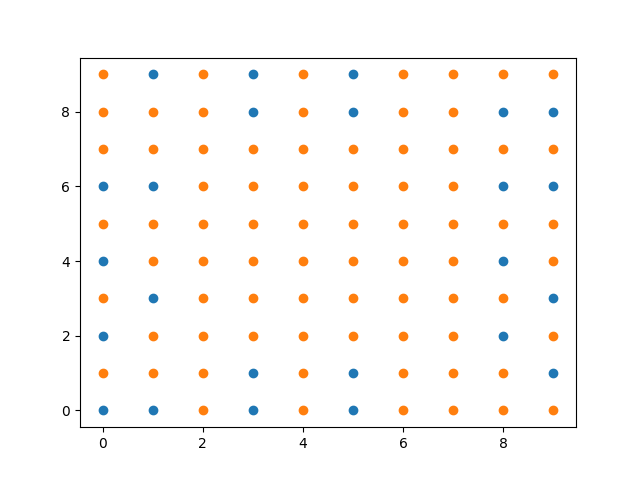Question: What is the size of the largest subset of $[n]^2$ containing no three point configurations of the form $(x,y), (x,y+d), (x+d,y')$ with $d \neq 0$? In particular, is it at most $O(n)$?
Recall that the corners theorem of Ajtai and Szemerédi says that the largest subset of $[n]^2$ containing no three point configuration $(x,y), (x,y+d), (x+d,y)$ with $d \neq 0$ has size $o(n^2)$. In addition, there is a lower bound on this quantity of $n^{2-o(1)}$, which can be obtained by taking the set of points lying on a set of slope-$1$ lines whose $y$-intercepts contain no nontrivial $3$-term arithmetic progressions (for example).
The difference between the corners problem and the above question is that I forbid not only the third point of the corner $(x+d, y)$, but all points on the entire vertical line through this point. This is stronger, so the answer is $o(n^2)$ by the corners theorem. This is the best upper bound I know, although it seems like my condition is much stronger. The only lower bounds I know are linear. For example, you can take $S = \{(1,y), (n,y) : y \in [n-1]\}$, which shows that the answer is at least $2(n-1)$. This is not exactly optimal though; for example, for $n=10$ the largest such set has size $24$, shown by the set of blue points in the below picture.

